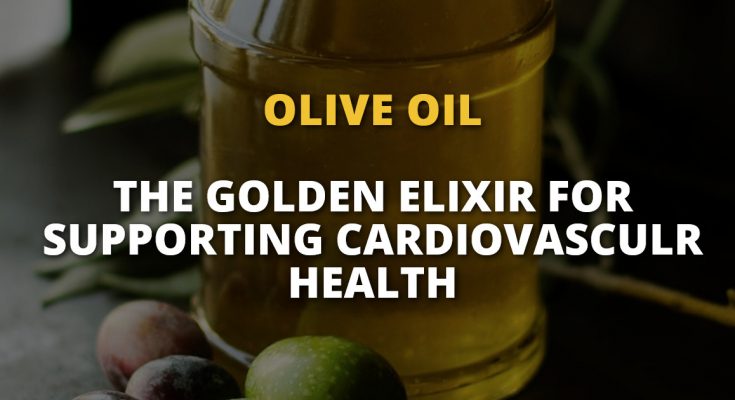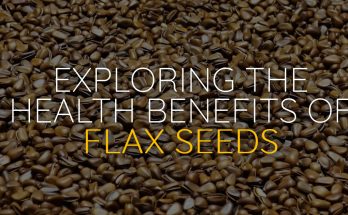Olive oil has long been recognized as a staple of the Mediterranean diet, known for its ability to promote heart health.
Olive oil is not only delicious, but contains a variety of heart-healthy nutrients from monounsaturated fatty acids, to vitamins E and K, and the powerful antioxidant and anti-inflammatory polyphenolic fraction.
In this article, we are going to explore the latest science on olive oil, and it’s benefits for maintaining a healthy heart.
1. Olive Oil May Reduce Cardiovascular Disease Risk
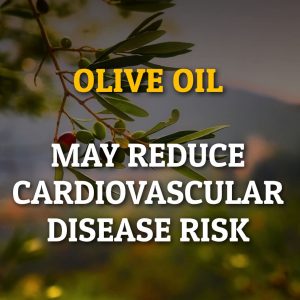
Numerous studies have found an association between olive oil intake and a reduced risk of developing cardiovascular disease.
Olive oil is considered to be a key component of the traditional Mediterranean diet pattern, which is one of the diets with the strongest body of evidence supporting its heart health benefits.
Some of the secret behind olive oil’s cardiovascular health benefits lies in its rich monounsaturated fat content, specifically oleic acid.
These healthy fats help to reduce LDL cholesterol levels, thereby decreasing the risk of heart disease and stroke.
Elevated concentrations of LDL-C is still considered to be one of the most common and easily modifiable CVD risk factors.
A summary of the latest scientific evidence on Olive Oil and cardiovascular disease risk has found:
A 16% reduced risk of CVD (relative risk [RR]: 0.84; 95% confidence interval [CI]: 0.76 to 0.94), standardized for every additional olive oil consumption of 25 g/d was found. – [1]
Olive oil consumption is inversely related to the risk of CVD and all-cause mortality. Such benefits seem to be obtained with an intake of olive oil up to 20 g/days. – [2]
Daily moderate consumption of virgin OO (1 and 1/2 tablespoons) was associated with a one-third lower risk of all-cause as well as half the risk of cardiovascular mortality. – [3]
Olive oil is associated with lower risk of CVD and stroke. The maximum benefit could be obtained with a consumption between 20 and 30 g/day. – [4]
2. Olive Oil May Improve Endothelial Function
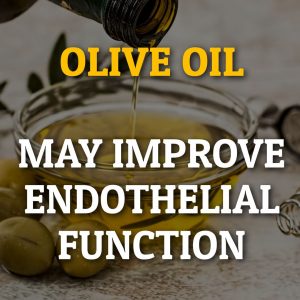
Olive oil, with its high concentration of polyphenols, emerges as a potential superstar for promoting endothelial function.
Numerous studies have now found that Olive oil has a beneficial effect on improving endothelial function.
A systematic review and meta-analysis of randomized controlled trials published 2015, evaluated the effects of olive oil on markers of inflammation and endothelial function.
The systematic review and meta-analysis concluded:
These results provide evidence that olive oil might exert beneficial effects on endothelial function as well as markers of inflammation and endothelial function, thus representing a key ingredient contributing to the cardiovascular-protective effects of a Mediterranean diet. – [5]
A number of studies revealed that olive oil phenolic compounds can amend endothelial function by increasing NOS expression levels, including iNOS and eNOS, hence increasing nitric oxide bioavailability. – [6]
3. Rich Source Of Vitamin E
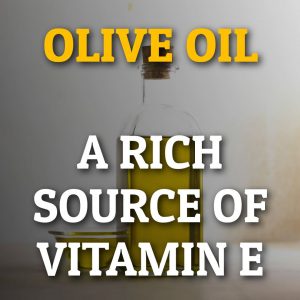
Olive oil is a great source of vitamin E, a powerful fat-soluble antioxidant.
Vitamin E helps protect our cells from the damaging effects of free radicals and supports a healthy cardiovascular system.
Incorporating olive oil into your diet aids in achieving the recommended daily intake of vitamin E.
The type of vitamin E found in olive oil is alpha tocopherol at levels ranging from 1.2 to 43mg /100g.
One tablespoon of olive oil contains 1.9 milligrams of vitamin E, which is 10 percent of the daily value of this nutrient based on a 2,000-calorie diet. – [7]
4. Olive Oil’s Potent Anti-Inflammatory Properties & Reducing Inflammatory Biomarkers
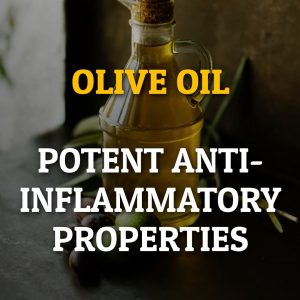
Unlike other cooking oils, olive oil possesses extraordinary anti-inflammatory properties, in large part due to the rich polyphenolic fraction.
The compounds found in olive oil, such as oleocanthal and oleacein, work similarly to anti-inflammatory drugs, mitigating the risk of chronic diseases like arthritis, cardiovascular issues, and even certain types of cancer.
So, why not give your body a natural, flavourful defence against inflammation?
A summary of the current scientific evidene on olive oil for reducing inflammatory biomarkers has found:
Consumption of EVOO is associated with a reduction in inflammatory biomarkers and molecules implicated in atherosclerosis as well as CVD incidence and mortality as well as other complications such as heart failure and atrial fibrillation.
Moreover, these anti-inflammatory and cardioprotective effects of EVOO are mostly attributable to its high content of polyphenol molecules.
Currently available evidence supports the anti-inflammatory and cardio-protective roles of EVOO. – [8]
5. Olive Oil’s Vasculoprotective Properties In Atherosclerosis (Antioxidant to Anti-Thrombotic)
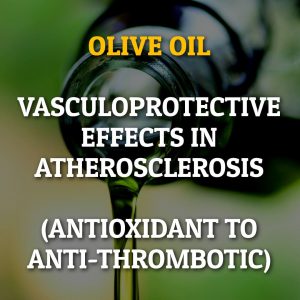
Olive oil doesn’t only possess potent anti-inflammatory properties and an ability to reduce inflammation.
The scientific literature has described olive oil as having a myriad of vasculoprotective therapeutic mechanisms that may be beneficial in the management of atherosclerosis.
Olive oil bioactive compounds exhibited a potent capability to attenuate oxidative stress and improve endothelial function through their anti-inflammatory, anti-oxidant, and anti-thrombotic properties, therefore reducing the risk and progression of atherosclerosis. – [6]
6. Olive Oil For Supporting Metabolic Health & Reducing Type 2 Diabetes Risk
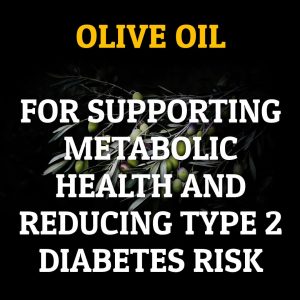
Robust metabolic function and good cardiovascular health, go hand in hand.
In fact, you cannot have one without the other.
Olive oil’s magical properties can be attributed to its rich composition of monounsaturated fatty acids (MUFAs) and polyphenols.
These compounds work in tandem to enhance insulin sensitivity, curb inflammation, and prevent oxidative stress – all factors crucial in managing diabetes.
A systematic review and meta-analysis published 2022 assessed the association between olive oil consumption and the primary risk of 4 different outcomes: cardiovascular disease (CVD), cancer, type 2 diabetes (T2D) or all-cause mortality through January 2022.
The systematic review and meta-analysis found:
Olive oil consumption was associated with a 22% lower relative risk of Type 2 diabetes (T2D). – [1]
References
[4] Olive oil consumption is associated with a lower risk of cardiovascular disease and stroke
[6] Vasculoprotective Role of Olive Oil Compounds via Modulation of Oxidative Stress in Atherosclerosis
[7] Effects of Minor Components of Olive Oil on Health
[8] Olive Oil-related Anti-inflammatory Effects on Atherosclerosis: Potential Clinical Implications
The information in this article has not been evaluated by the FDA and should not be used to diagnose, cure or treat any disease, implied or otherwise.
Always consult with a qualified healthcare professional before making any significant dietary or lifestyle changes including supplements and herbs.
